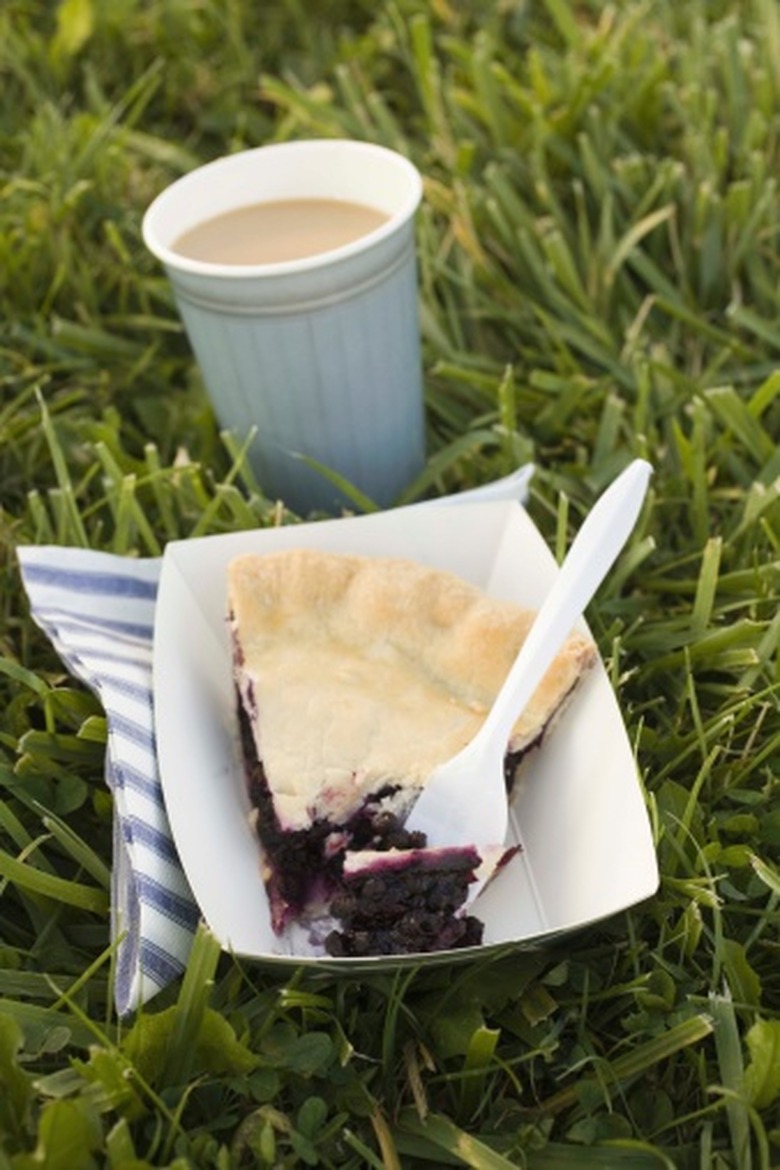How To Grow Blueberries In Mississippi
While blueberries are better known in northern states like Michigan and Indiana, certain varieties of this tiny fruit can thrive in Mississippi. Heading out to the garden to pick a batch of ripe blueberries can be a rewarding experience that anyone in the state can enjoy. Even amateur gardeners can have success with the blueberry bush.
Step 1
Purchase a type of blueberry bush that's suitable for growing in your region from a reputable garden center. Mississippi State University recommends rabbiteye cultivars of Climax, Brightwell or Baldwin or the southern highbush cultivars of Biloxi, Gulf Coast and O'Neal.
Step 2
Dig a hole in a suitable location on your property. The spot should be clear of other plants, receive at least six hours of full sun, and have soil with a pH level between 4.5 and 5.2. Make sure the hole is slightly deeper than the roots of the plant.
- While blueberries are better known in northern states like Michigan and Indiana, certain varieties of this tiny fruit can thrive in Mississippi.
- Purchase a type of blueberry bush that's suitable for growing in your region from a reputable garden center.
Step 3
Place the bush in the hole, and cover the base with either peat or mulch to help with soil drainage.
Step 4
Water the blueberry bush with approximately 2 inches of water each week. Monitor the rain in your area, as watering may not be necessary.
Step 5
Fertilize the blueberry bush each spring by applying 4 oz. of ammonium sulfate or fishmeal.
Step 6
Prune the base of the plant only after it's been in the ground for three years.
Blueberries Are Ripe
Blueberries have a higher antioxidant capacity than any other fruit, earning them a place on your table and in your home garden. In fact, you can have one cluster containing both green and ripe fruit. Unlike some fruits, blueberries will not ripen after you pick them, so you must wait until the berries fully ripen before harvesting. Examine the cluster of blueberries. The blueberries will be ripe when they are completely blue in color, from the stem end to the calyx end. If the blueberries have green or red near the stem end, do not pick them yet. Taste your blueberries for ripeness. Ripe blueberries taste sweet; unripe blueberries will not have much flavor or sweetness.
- Place the bush in the hole, and cover the base with either peat or mulch to help with soil drainage.
- Unlike some fruits, blueberries will not ripen after you pick them, so you must wait until the berries fully ripen before harvesting.
Things Needed
- Rabbiteye or southern highbush blueberry bush
- Shovel
- Growing location with full sun
- Peat or mulch
- Water
Tip
Freeze any blueberries that won't be consumed soon after picking to ensure they don't go to waste.
References
- Mississippi State University: Small Fruit
- The Ohio State University: Growing Blueberries in the Home Garden
- University of Maine: Growing Highbush Blueberries
- University of Illinois Extension Wellness Ways Resource Book: Berries — Teacher Guide
- Purdue University Horticulture & Landscape Architecture; Commodities / Blueberries; B. Bordelon; June 2003
